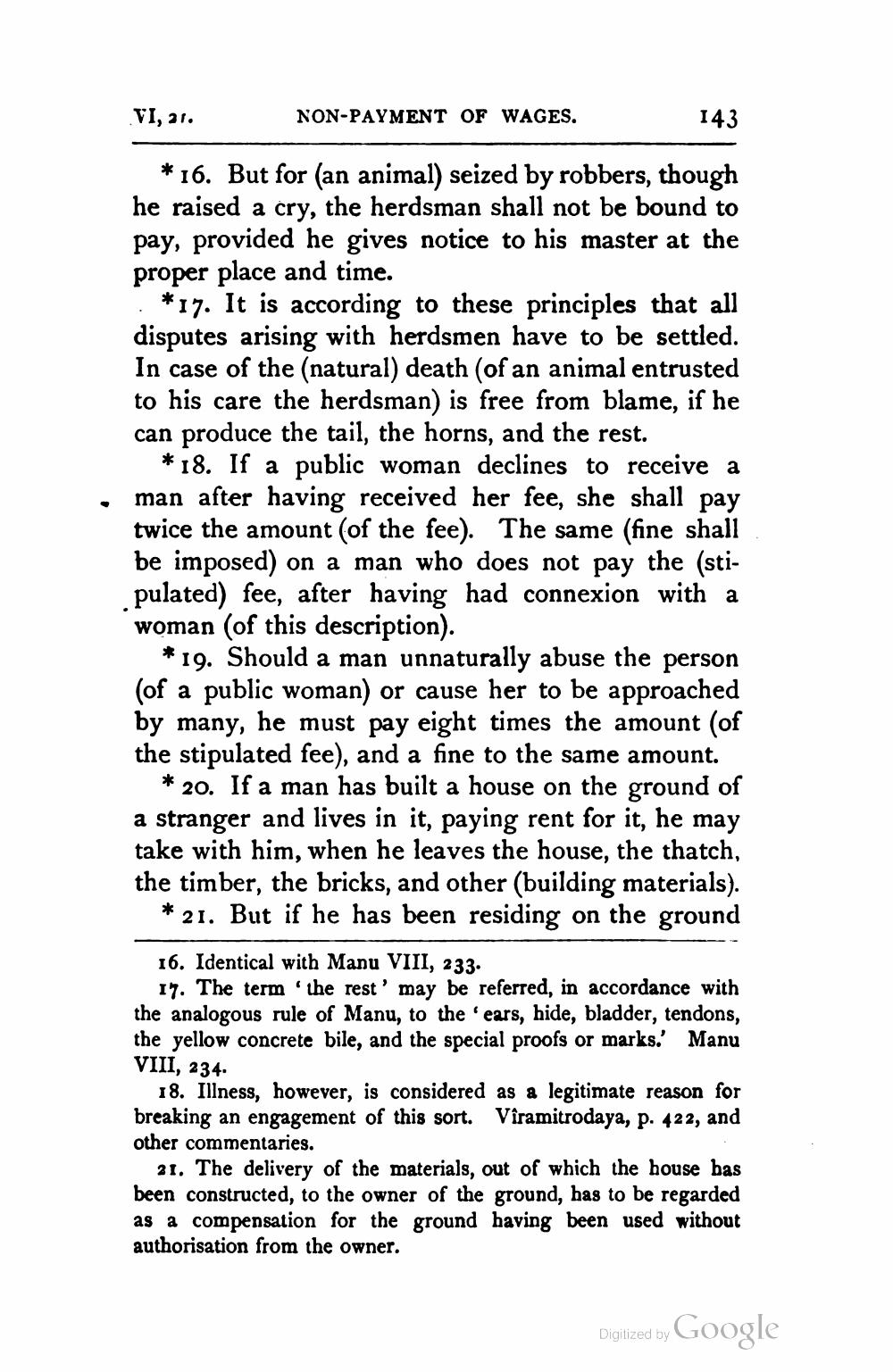________________
·
VI, 21.
* 16. But for (an animal) seized by robbers, though he raised a cry, the herdsman shall not be bound to pay, provided he gives notice to his master at the proper place and time.
NON-PAYMENT OF WAGES.
143
*17. It is according to these principles that all disputes arising with herdsmen have to be settled. In case of the (natural) death (of an animal entrusted to his care the herdsman) is free from blame, if he can produce the tail, the horns, and the rest.
*18. If a public woman declines to receive a man after having received her fee, she shall pay twice the amount (of the fee). The same (fine shall be imposed) on a man who does not pay the (stipulated) fee, after having had connexion with a woman (of this description).
* 19. Should a man unnaturally abuse the person (of a public woman) or cause her to be approached by many, he must pay eight times the amount (of the stipulated fee), and a fine to the same amount.
* 20. If a man has built a house on the ground of a stranger and lives in it, paying rent for it, he may take with him, when he leaves the house, the thatch, the timber, the bricks, and other (building materials).
* 21. But if he has been residing on the ground
16. Identical with Manu VIII, 233.
C
17. The term 'the rest' may be referred, in accordance with the analogous rule of Manu, to the ears, hide, bladder, tendons, the yellow concrete bile, and the special proofs or marks.' Manu VIII, 234.
18. Illness, however, is considered as a legitimate reason for breaking an engagement of this sort. Vîramitrodaya, p. 422, and other commentaries.
21. The delivery of the materials, out of which the house has been constructed, to the owner of the ground, has to be regarded as a compensation for the ground having been used without authorisation from the owner.
Digitized by
Google




